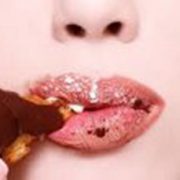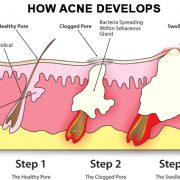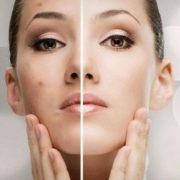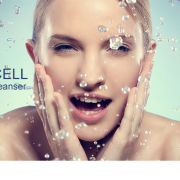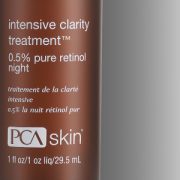Is Your Skin Suffering From The Sugar Blues ?
We all know that too much sugar is bad for our health. Most people aren’t aware of sugars negative effects on the skin. Sugar consumption is linked to a process known as glycation.
Glycation is the result of a sugar molecule—either fructose or glucose—bonding to a protein or lipid molecule. When sugar molecules are present, they come in contact and grasp onto fats and proteins, forming advanced glycation end products, or AGEs. This process will causes protein fibers, or collagen, to become stiff and malformed. These AGEs often make the skin and body more vulnerable to the assailants that contribute to skin diseases and disorders.
As people age, AGEs damage proteins in the body, cause inflammation of the skin, and impact collagen and elastin, leading to signs of aging, including acne, rosacea, eczema, hyper pigmentation, loss of firmness, and wrinkles. When glucose cross-links with type III collagen, the strongest form, it transforms it into type I, the weakest, and becomes rigid and inflexible. This weakening of collagen leads to accelerated wrinkles. Collagen is the most prevalent protein in the body. Once they are damaged, collagen and elastin become dry and brittle, which leads to wrinkles and sagging.
External signs of excess-sugar-induced aging typically start showing around ages 30 to 35 glycation does not occur in the dermis when people are young. Our youthful bodies produce more collagen and have more defenses to block the damage created by the AGEs. Glycation damage usually begins to show as wrinkles, lines, discoloration, and inflammation. Similar to sun-damage, glycation damage leads to wrinkles, damaged DNA, cell death, and potentially skin cancer.
Preventive measures reduce their daily intake of free sugars, which are monosaccharides and disaccharides added to foods and natural sugars found in honey, syrups, and fruit juices, to less than 10 percent of their total energy intake to provide health benefits and help reduce the risk of obesity and tooth decay. Skin can also benefit from this guideline, as glycation can be prevented or slowed down by simple changes to diet and lifestyle. External causes for glycation include sun exposure, air pollution, smoking, cosmetics, and allergens, among others.
Examples of anti-glycation products that are DNA repairative are the Image Skincare Ageless line because of ingredients like tocopherol Vit E and soybean and Image Skincare Vital C Serum with Ascorbic Acid Vit C, A & E. These two products help with collagen synthesis. and are great products for overall skin regeneration. And as far as treatments to help with the ravages of glycation the best is Collagen Induction Therapy, (CIT) which can help the skin increase collagen production naturally as well as the production of Epidermal Growth Factors for skin generation. CIT is the single most important thing you can do to combat glycation. Urban Retreat Spa is South Floridas best facial Collagen Induction Therapy resource. Certified by the Florida Esthetics Association in Collagen Induction and having performed hundreds of these treatments since 2013 make Urban Retreat Spa the leader in this cutting edge skin regenerating treatment.

